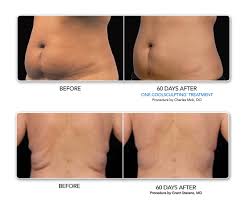How Therapists Help and the Six Main Skills You Should Know
If you or someone you know is considering therapy in Los Angeles, you might have heard about Dialectical Behavior Therapy (DBT). It’s a special type of therapy that helps people manage their emotions, improve their relationships, and build a happier life. One common question people have is, “Does the therapist help the client in DBT?” and “What are the six main points of DBT?” In this guide, we’ll break down what DBT is, how therapists assist clients, and explain the six key skills you’ll learn in this therapy. We’ll also introduce Rainbow Hill Recovery as a fantastic place to start your journey with DBT skills.
What is Dialectical Behavior Therapy (DBT)?
Dialectical Behavior Therapy (DBT) is a type of cognitive-behavioral therapy that was designed to help people with intense emotions and self-destructive behaviors. It was developed by Dr. Marsha Linehan and focuses on teaching skills to manage emotions, handle stress, and improve relationships. DBT is especially useful for people who feel overwhelmed by their feelings and struggle with self-control.
Does the Therapist Help the Client in DBT?
Yes, therapists play a crucial role in DBT. Here’s how they help:
- Teaching Skills: Therapists teach clients specific skills that are part of DBT. These skills are designed to help people manage their emotions, handle stress, and interact better with others.
- Providing Support: Therapists offer emotional support and encouragement throughout the therapy process. They help clients apply the skills they learn in sessions to real-life situations.
- Guiding Practice: DBT involves a lot of practice. Therapists guide clients in practicing the skills in various situations and provide feedback to help them improve.
- Offering Feedback: Therapists observe how clients use the skills and offer feedback. This helps clients understand what’s working and what might need adjustment.
- Creating a Safe Space: DBT therapists create a safe and non-judgmental environment where clients can explore their feelings and experiences. This helps build trust and encourages open communication.
- Setting Goals: Therapists work with clients to set realistic goals and track their progress. This helps clients stay motivated and focused on their recovery.
The Six Main Points of Dialectical Behavior Therapy Skills
Dialectical Behavior Therapy focuses on teaching six main skills that are divided into four core areas: Mindfulness, Distress Tolerance, Emotion Regulation, and Interpersonal Effectiveness. Here’s a simple breakdown of each skill:
- Mindfulness:
- What It Is: Mindfulness involves paying attention to the present moment without judgment. It helps you stay focused on what’s happening right now rather than getting caught up in past regrets or future worries.
- Why It’s Important: Mindfulness helps you become more aware of your thoughts and feelings, which can reduce stress and improve your ability to handle difficult situations.
Distress Tolerance:
- What It Is: Distress tolerance skills help you manage and tolerate intense emotions or stressful situations without making things worse. This involves learning ways to stay calm and avoid reacting impulsively.
- Why It’s Important: These skills are crucial for handling crisis situations and preventing self-destructive behaviors.
Emotion Regulation:
- What It Is: Emotion regulation skills focus on understanding and managing your emotions in a healthy way. This includes identifying emotions, increasing positive emotions, and decreasing negative emotions.
- Why It’s Important: Learning to regulate your emotions can improve your mood, reduce emotional suffering, and help you respond to situations more effectively.
Interpersonal Effectiveness:
- What It Is: Interpersonal effectiveness skills teach you how to communicate and interact with others in a way that is assertive and respectful. This includes expressing your needs, setting boundaries, and resolving conflicts.
- Why It’s Important: Good interpersonal skills can improve your relationships, reduce misunderstandings, and help you feel more connected to others.
Additional Key Skills in DBT:
- Radical Acceptance:
- What It Is: Radical acceptance involves fully accepting reality as it is, even if it’s painful or challenging. It means letting go of the struggle against what you can’t change and focusing on how to move forward.
- Why It’s Important: Accepting reality can reduce suffering and help you find peace, even in difficult situations.
Self-Soothing:
- What It Is: Self-soothing skills involve using techniques to calm yourself down and take care of your emotional needs. This can include activities like listening to music, taking a bath, or practicing deep breathing.
- Why It’s Important: Self-soothing helps you manage stress and emotions more effectively, which can improve overall well-being.
How to Find Therapy Programs with DBT Skills in Los Angeles
If you’re interested in learning DBT skills, finding the right therapy program is essential. Here’s how you can find a program that offers DBT in Los Angeles:
- Search for DBT Programs: Look for therapy programs that specifically offer Dialectical Behavior Therapy. Many programs will mention DBT as part of their treatment approach.
- Check for LGBTQ+ Inclusivity: If you’re looking for a program that is inclusive of LGBTQ+ individuals, make sure the therapy program highlights their commitment to supporting the LGBTQ+ community.
- Read Reviews and Testimonials: Look for reviews and testimonials from others who have participated in DBT programs. This can give you an idea of the effectiveness and quality of the program.
- Ask for Recommendations: Reach out to local LGBTQ+ support groups and organizations for recommendations on DBT programs. They may have valuable insights and suggestions.
- Visit Therapy Centers: If possible, visit the therapy centers you’re interested in. This allows you to see the facilities, meet the therapists, and ask questions about their DBT approach.
Consider Rainbow Hill Recovery
If you’re looking for a therapy program in Los Angeles that offers Dialectical Behavior Therapy, Rainbow Hill Recovery is an excellent choice. They are known for their comprehensive and compassionate approach to DBT skills, providing a supportive environment tailored to meet the unique needs of each individual.
Rainbow Hill Recovery’s DBT programs include expert guidance, interactive activities, and a safe space to explore and practice new skills. Their experienced therapists are dedicated to helping clients manage their emotions, improve their relationships, and build a happier life.
By choosing Rainbow Hill Recovery, you’re joining a community that understands and respects your experiences. Recovery and personal growth are possible, and with the right support, you can achieve lasting change.
If you or someone you know is interested in Dialectical Behavior Therapy, consider reaching out to Rainbow Hill Recovery. They offer the skills and resources needed to help you succeed on your journey to a healthier, more fulfilling life.






